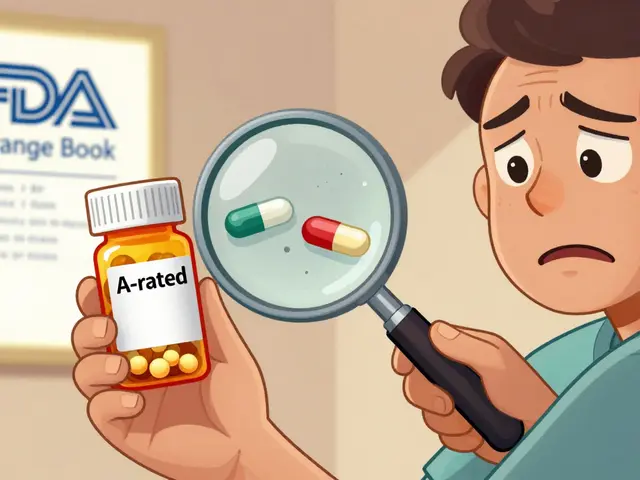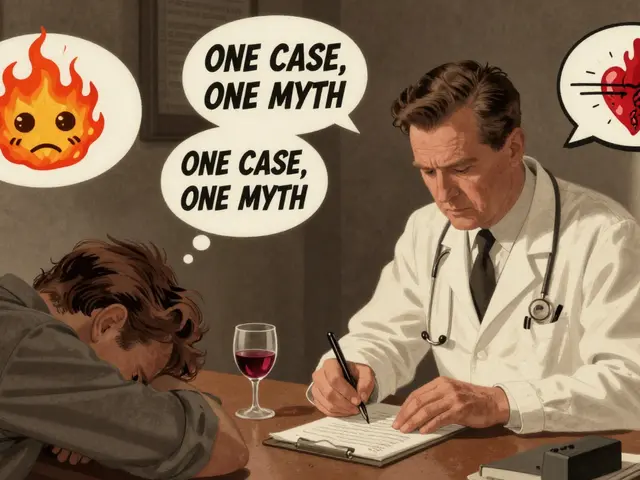Kidney‑Related Vomiting: What to Do Right Now
If you’re throwing up and you have a kidney issue, you’re probably feeling scared and uncomfortable. The good news is that a lot of the nausea can be eased at home while you keep an eye on the signals that mean it’s time to call a doctor.
Home Strategies to Calm Nausea
First, stay hydrated—but don’t gulp large amounts of water all at once. Sip clear fluids like broth, electrolyte drinks, or diluted apple juice every 10‑15 minutes. This helps replace the fluids you lose and prevents dehydration, which can make kidney problems worse.
Next, give your stomach a break. Stick to bland foods such as plain rice, toast, bananas, or boiled potatoes. Avoid spicy, fatty, or acidic meals until the vomiting stops. Small, frequent meals are easier on the gut than big plates.
Over‑the‑counter anti‑nausea meds like meclizine or dimenhydrinate can be useful if you’re not already on prescription drugs that interact with them. Always read the label and, if you’re on dialysis or have high blood pressure, check with your pharmacist first.
Watch your medication list. Some kidney‑related prescriptions (like certain antibiotics or pain relievers) can irritate the stomach. If you suspect a drug is the trigger, talk to your doctor about switching to a gentler option.
Rest is underrated. Lying down with your head slightly elevated can reduce the urge to vomit. Turn off bright lights and limit screen time, as visual stimulation can worsen nausea for some people.
When Professional Care Is Needed
Home care works for mild cases, but you should seek medical help right away if you notice any of these red flags:
- Blood in the vomit or a coffee‑ground appearance.
- Fever over 100.4°F (38°C) or chills.
- Severe flank or back pain that doesn’t ease with over‑the‑counter pain relievers.
- Urinating less than usual, dark urine, or no urine at all.
- Persistent vomiting lasting more than 24‑48 hours.
These symptoms could signal a kidney stone, infection, or acute kidney injury that needs urgent treatment. Your doctor may order blood tests, an ultrasound, or a CT scan to find the cause and decide whether you need IV fluids, antibiotics, or a procedure to remove a stone.
If you’re on dialysis, contact your clinic immediately. Vomiting can lead to dangerous shifts in electrolytes, and your treatment plan might need to be adjusted.
Finally, keep a simple log of what you eat, drink, and any symptoms you experience. This record helps your healthcare team pinpoint triggers and tailor a treatment plan that works for you.
In short, sip fluids, eat bland, rest, and watch for warning signs. When in doubt, call a doctor—your kidneys deserve prompt attention, and timely care can prevent complications down the road.

Vomiting & Kidney Disease: Causes, Diagnosis, and Treatment Options
Learn why vomiting occurs in kidney disease, how to spot the warning signs, and what treatments-from medication to dialysis-can help manage this risky symptom.
View More




